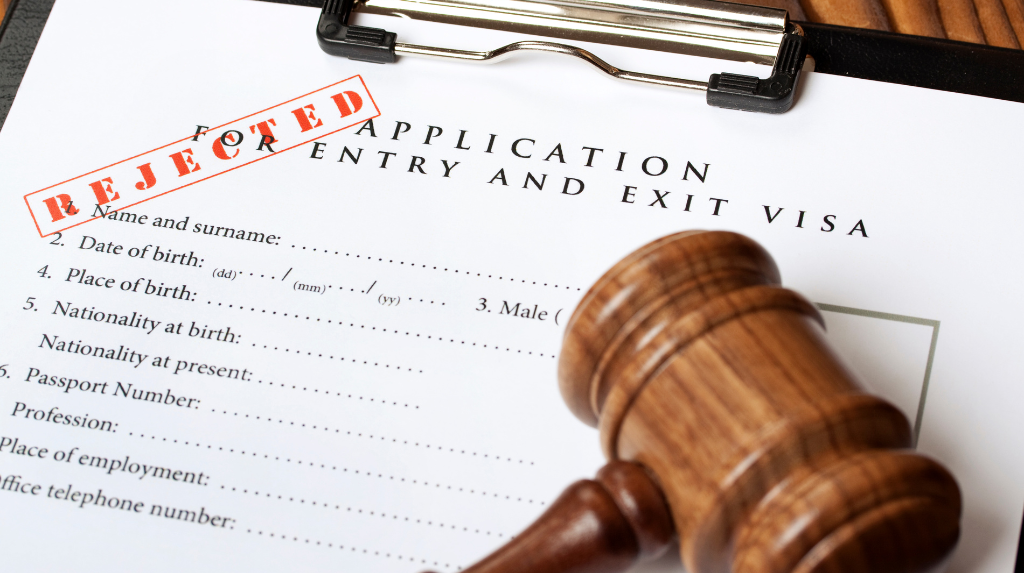When applying for a visa to Canada, it is essential to meet the eligibility requirements set by the immigration authorities. In certain instances, immigration authorities may reject a visa application due to medical grounds. This article aims to provide insights into the topic, exploring reasons behind visa rejections on medical grounds.
- How Soon After a Visa Refusal Can I Apply?
- How Long Does It Take to Apply for a Canada Visa After Refusal?
- Canada Visitor Visa Refusal Reasons
Understanding Medical Inadmissibility
Medical inadmissibility refers to a scenario where an individual’s health condition poses risks to public health or overburdens Canadian healthcare. The government must safeguard the health of citizens and residents.
Medical Examination for Visa Applicants
To assess medical inadmissibility, visa applicants may need to undergo a medical examination conducted by an approved panel physician. The medical examination aims to identify any health conditions that could potentially affect the individual’s admissibility to Canada.
The examination typically includes a review of the applicant’s medical history, a physical examination, and sometimes additional tests or investigations as deemed necessary by the physician.
The panel physicians report the findings from the medical examination to the immigration authorities for consideration in the visa application process.
Common Medical Grounds for Visa Rejection
Several medical conditions or circumstances may lead to a visa rejection on medical grounds. Some common grounds include:
- Communicable diseases: Having a communicable disease like tuberculosis or HIV/AIDS considered a risk may lead to visa rejection. However, it’s important to note that not all medical conditions are grounds for inadmissibility.
- Excessive demand on healthcare or social services: If an applicant’s medical condition strains Canada’s healthcare or social services, it may result in visa rejection due to excess demand. The decision is based on factors such as the anticipated cost of treatment, duration of care, and availability of resources.
- Danger to public safety: In cases where an individual’s medical condition poses a threat to public safety, it may result in visa rejection. Conditions causing sudden incapacitation or impairment during tasks, endangering others, may result in visa rejection.
Overcoming Medical Inadmissibility
If immigration rejects a visa application on medical grounds, applicants still have potential avenues to overcome the inadmissibility. Here are some possible steps to consider:
- Seeking additional medical opinions: If you believe that the medical assessment was inaccurate or incomplete, you can consult with other healthcare professionals to obtain second opinions or further medical documentation to support your case.
- Demonstrating mitigating factors: If your condition has improved or stabilised, you can provide evidence of successful treatment, medical management, or lifestyle changes that mitigate the risk associated with your medical condition.
- Exploring alternative healthcare options: It may be beneficial to explore alternative healthcare options in Canada, such as private medical coverage or arrangements for covering the costs of treatment without relying extensively on publicly funded resources.
Additional Documentation and Appeals
In cases of visa rejection on medical grounds, applicants may have the opportunity to submit additional documentation or appeal the decision. It is essential to carefully follow the instructions provided by the immigration authorities and seek professional advice from an immigration lawyer or consultant to navigate the appeals process effectively.
In conclusion, while a Canada visa may be rejected for medical reasons, understanding and addressing these rejections is crucial for applicants. Accurate medical info, proper opinions, and a well-supported case offer a chance to overcome medical inadmissibility for a Canadian visa.
Frequently Asked Questions on Can Canada Visa Be Rejected on Medical Grounds?
Can a visa be rejected solely based on having a medical condition?
No, having a medical condition alone does not necessarily lead to visa rejection. The decision is based on factors such as the potential risk to public health, excessive demand on resources, or danger to public safety.
Can I provide additional medical documentation after a visa rejection?
In some cases, applicants may have the opportunity to submit additional medical documentation or appeal the decision. It is advisable to consult with an immigration lawyer or consultant for guidance on the specific process and requirements.
Is there a list of medical conditions that automatically lead to visa rejection?
No, there is no definitive list of medical conditions that automatically result in visa rejection. Cases are assessed individually, considering factors like condition severity, available treatments, and potential impact on public health or resources.
Can I reapply for a visa after a rejection on medical grounds?
Yes, in most cases, you can reapply for a visa after a rejection on medical grounds. It is important to address the reasons for the initial rejection and provide any additional information or documentation that supports your case.
Should I consult with an immigration lawyer for a visa application involving medical conditions?
While it is not mandatory to seek legal assistance, consulting with an immigration lawyer or consultant specialising in medical inadmissibility can provide valuable guidance and increase your chances of a successful visa application.
Do you need a Canadian Medical visa?
Contact our team of skilled immigration lawyers to discuss your visa and immigration needs.
Call us on +234 812 5505 986 or WhatsApp us at +234 818 1547 085 for immediate assistance with your situation. We are available to assist you in person, over the phone, or online.

